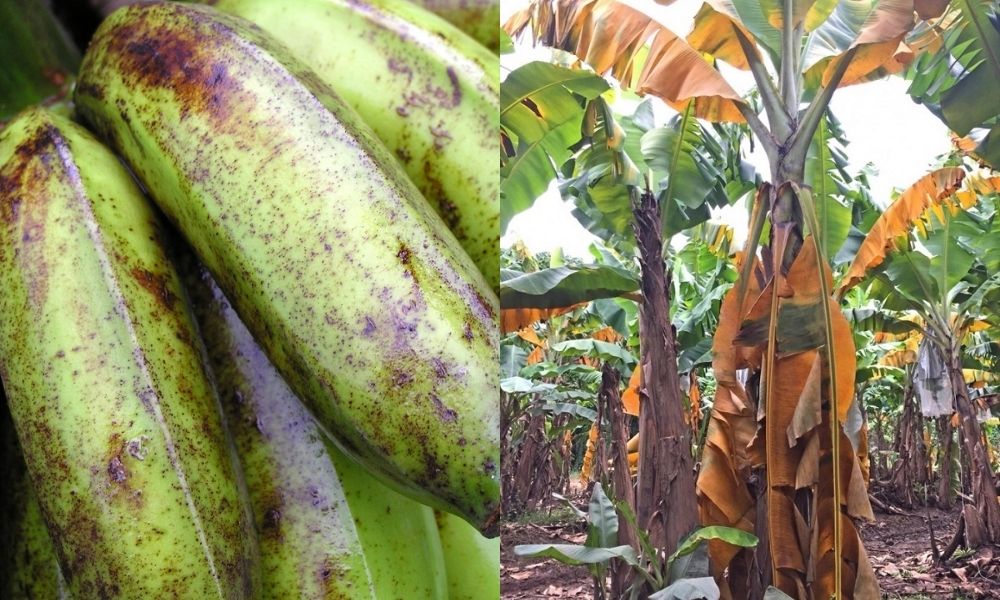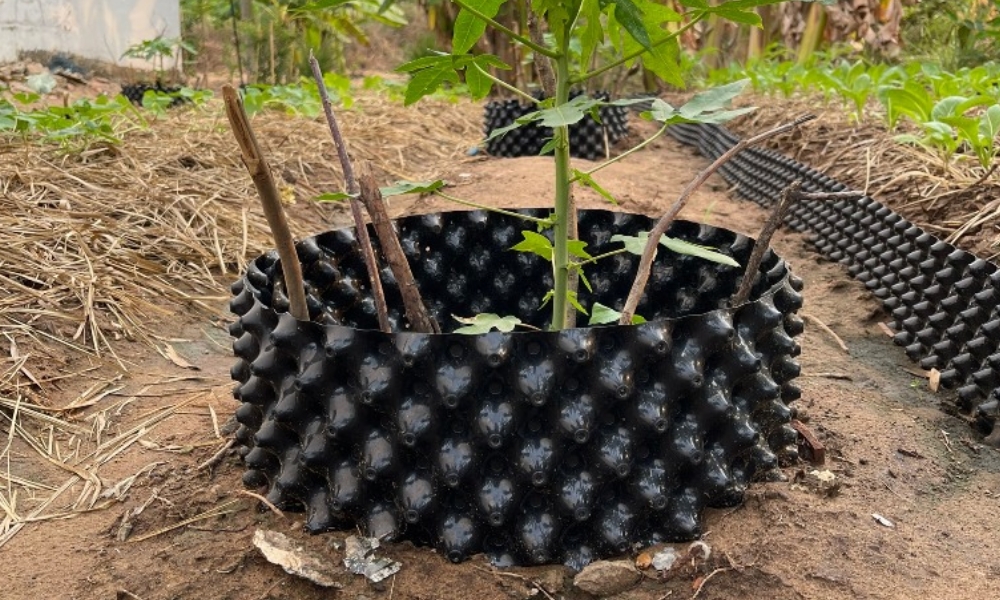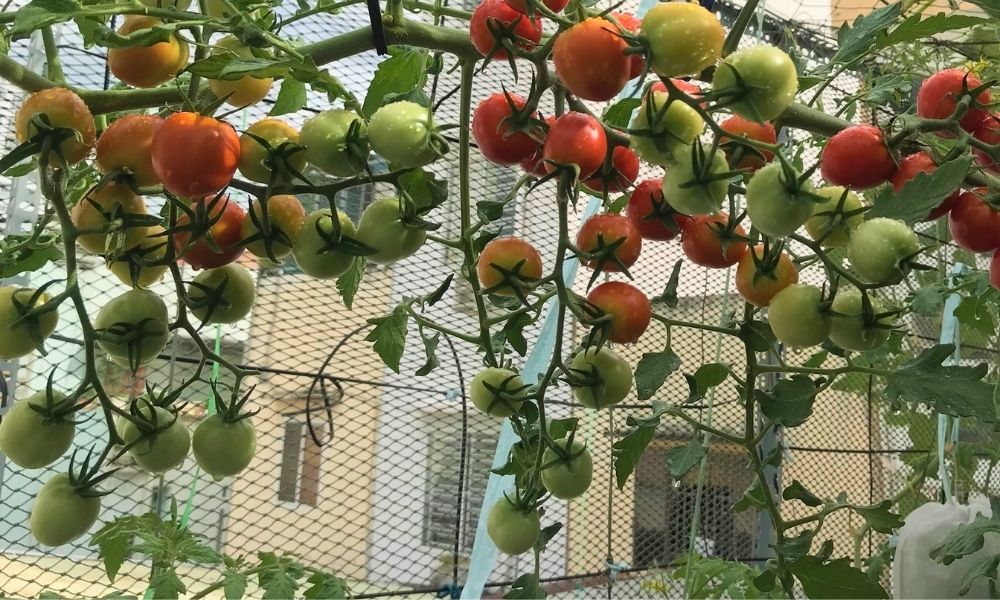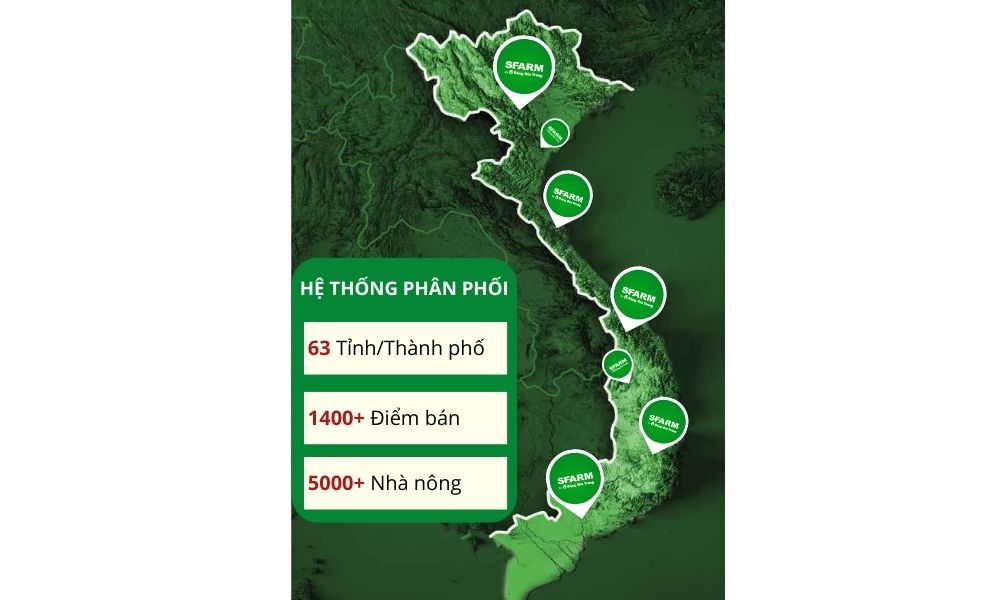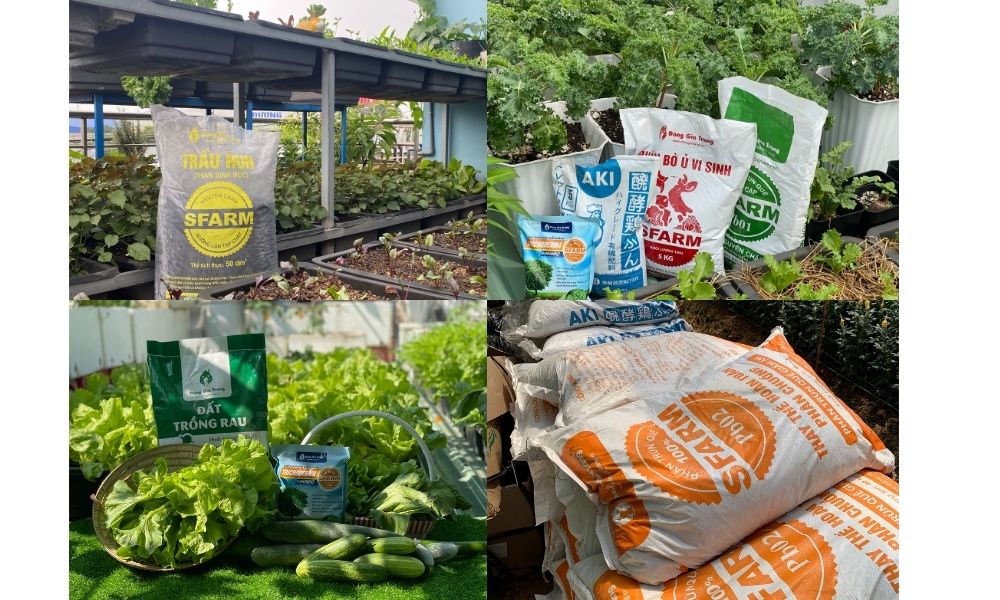Phân đạm là gì? Công dụng và cách bón phân đạm hiệu quả nhất
When using organic fertilizer is becoming a trend nitrogen fertilizer is still one of the important chemical fertilizers favored by farmers. So what are the uses and benefits of nitrogen fertilizer that people still choose? Find out with Blog Kiến Thức Tổng Hợp Nông Nghệp!
What is nitrogen fertilizer? The great benefits that nitrogen fertilizer brings to plants
Nitrogen fertilizer is also known as Urea fertilizer. This is the common name of chemical fertilizers that provide nitrogen for plants. The nutritional value of nitrogen fertilizer is evaluated by the percentage of nitrogen in the fertilizer. Nitrogen fertilizer is used to supplement nitrogen for plants in two main forms:
- Nitrate ion (NO₃-): Provides nutrients quickly, easily absorbed by plants.
- Ammonium ion (NH₄+): Absorbs slower, but helps plants use sustainably for a long time.
Benefits of nitrogen fertilizer for plants:
Nitrogen fertilizer plays a very important role in plant growth, because nitrogen is the main ingredient in nitrogen fertilizer. Nitrogen participates in compounds such as phecman, alkaloids and many other important substances, helping plants increase their resistance to adverse conditions.
Besides, Nitrogen also participates in the structure of proteins, DNA, RNA and plant cell membranes, and plays an important role in the metabolism of plant organs.
This is also the main component of chlorophyll, helping plants photosynthesize and synthesize energy. Without nitrogen, plants will not be able to photosynthesize, leading to poor growth, yellow leaves and reduced yield.
In addition, nitrogen fertilizer also promotes tree branching, leaf growth, and strong branching, helping trees grow evenly and healthily. Thanks to these benefits, nitrogen fertilizer not only helps plants develop comprehensively but also improves productivity and quality of agricultural products. However, it needs to be used properly to avoid negative effects on the soil and the environment.
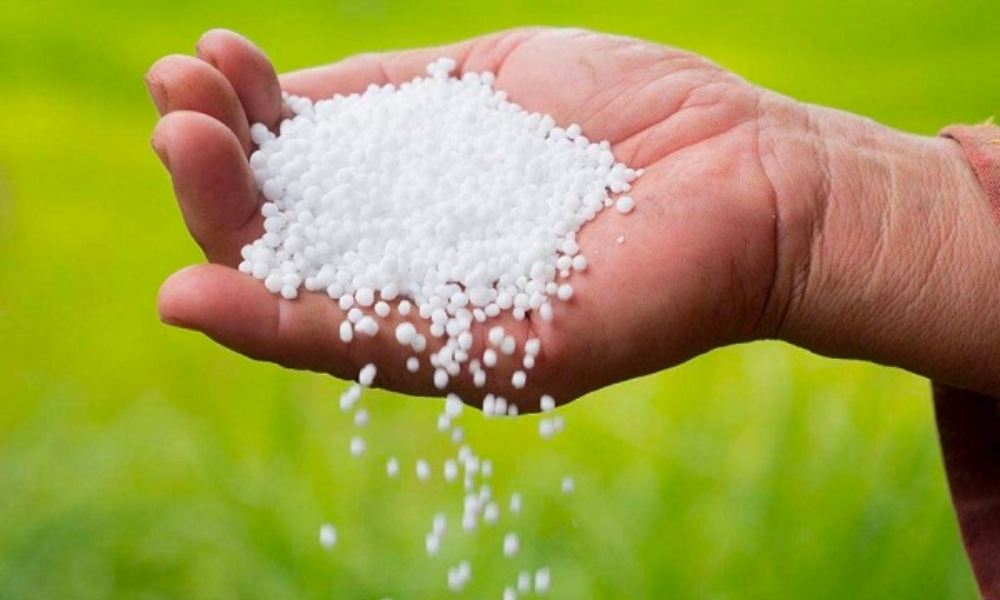 Nitrogen fertilizer plays an important role in plant growth
Nitrogen fertilizer plays an important role in plant growth
Nitrogen fertilizers are commonly used today
Currently, there are many types of nitrogen fertilizers commonly used in agriculture, playing an important role in providing nitrogen – an essential element for plant growth.
Choosing the right nitrogen fertilizer depends on the intended use, crop characteristics, soil and climate conditions. Here are the main types of nitrogen fertilizers and their characteristics:
Urea fertilizer
Urea fertilizer has the chemical formula CO(NH₂)₂ and contains high nitrogen content of 44 – 48%. This is the most popular nitrogen fertilizer in the world, accounting for more than 58% of global nitrogen fertilizer production.
Types of urea fertilizers
- White crystal form: Round, white seeds, easily soluble in water. It has the disadvantage of strong hygroscopicity and easy clumping, so it needs to be stored in a cool, dry place.
- Tablet form (small as fish eggs): Added anti-humidity agent, making it easy to preserve and transport. This type of Urea is more commonly used in agricultural production.
Advantages of Urea fertilizer
- Wide adaptation: Can be used on many different types of crops and soils.
- Highly effective on acidic soil: Especially suitable for fertilizing in acidic or saline soils.
- High nutritional content: Helps plants absorb quickly and brings high economic efficiency.
How to use Urea fertilizer
- Top dressing: Often used to fertilize plants during the growth process.
- Foliar spray: Dilute Urea fertilizer with water to a concentration of 0.5 – 1.5%, then spray directly on the leaves for faster absorption.
- Mix with other fertilizers: Urea can be mixed with phosphate fertilizer to fertilize the roots, but it needs to be used immediately and should not be left for a long time because it can easily reduce effectiveness.
- Preserve: Avoid direct exposure to sunlight, as light will cause the compost to decompose quickly and evaporate. Opened bags of stool should be used up within a short period of time to avoid moisture absorption and loss of quality.
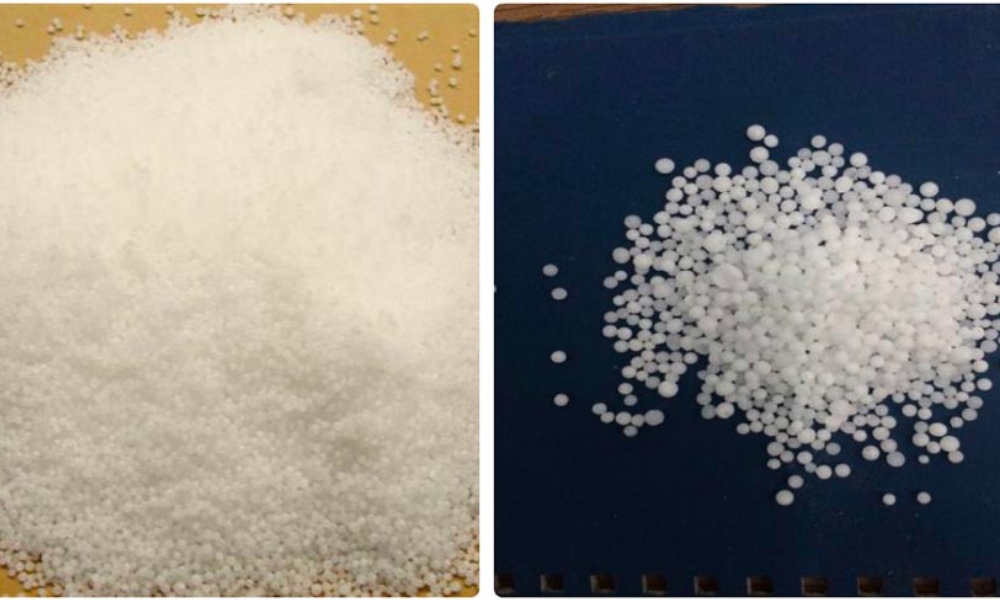 Types of urea fertilizers
Types of urea fertilizers
Ammonium nitrogen fertilizer
Ammonium nitrogen fertilizer is a synthetic nitrogen fertilizer, containing ingredients such as ammonium salt NH₄Cl, NH₄NO₃, (NH₄)₂SO₄, etc. The two most common types in this group are ammonium sulfate and ammonium chloride.
Ammonium Sulfate ((NH₄)₂SO₄)
Commonly known as SA fertilizer, contains 20-21% nitrogen (N) and 23-24% sulfur (S). This type of fertilizer is fast-acting, helping plants absorb nitrogen and sulfur effectively.
However, ammonium sulfate fertilizer can acidify the soil, so it should be combined with alkaline phosphate fertilizers or lime to balance the soil pH. When fertilizing, be careful not to over-fertilize, especially with seedlings, to avoid causing leaf burn. This fertilizer is often used for crops that require a lot of sulfur such as rice, beans and industrial crops.
Ammonium Chloride (NH₄Cl)
Contains 24-25% nitrogen (N) and 75% chlorine (Cl). The fertilizer is easily soluble in water, has little hygroscopicity, does not clump, and is easy to preserve and use. However, ammonium chloride is strongly acidic and can acidify the soil, while leaving residual Cl⁻ ions, negatively affecting plants sensitive to chlorine.
Therefore, when using, it is necessary to fertilize with phosphate fertilizer or other fertilizers to reduce negative impacts on soil and plants. This fertilizer is often used for top dressing, divided into several fertilizer applications so that plants can absorb it effectively.
Nitrogen Nitrate fertilizer
Nitrate nitrogen fertilizer is a group of fertilizers that provides nitrogen to plants in the form of nitrate ion (NO₃-), easily absorbed and used. Depending on composition and characteristics, nitrate fertilizers are often used in different conditions to suit crop needs and soil characteristics. Below are common types of nitrate nitrogen fertilizers:
Sodium nitrate (NaNO₃)
Contains 16% nitrogen, 25% Na₂O and trace amounts of boron. This type of fertilizer is often used for sugar crops such as sugar cane, sugar beets or root crops such as potatoes and carrots. However, because it contains a lot of sodium, it is not suitable for salty soils.
Calcium nitrate (Ca(NO₃)₂)
Contains 15-15.5% nitrogen and 25% CaO, is a strongly alkaline fertilizer, very suitable for fertilizing on acidic soils. In addition to providing nitrogen, this fertilizer also adds calcium to help improve soil structure and increase plant resistance. Calcium nitrate is often used for vegetables and fruit trees.
Magnesium nitrate (Mg(NO₃)₂)
Contains 13-15% nitrogen and 8% MgO. This type of fertilizer dissolves quickly in water, providing nitrogen and magnesium to plants at the same time. This fertilizer is especially suitable for magnesium-deficient soils or crops that require a lot of magnesium such as coffee, cocoa, and fruit trees.
Ammonium nitrate (NH₄NO₃)
Contains 33-35% nitrogen in both NH₄+ and NO₃- forms, crystalline, gray-yellow in color, easily hygroscopic and watery. Ammonium nitrate is suitable for use on land crops such as corn, cotton, sugarcane and other industrial crops.
Potassium nitrate (KNO₃)
Containing 13% nitrogen and 44% K₂O, it is mainly used as a Potassium fertilizer but also provides a significant amount of nitrogen. Potassium nitrate is suitable for fruit trees, green vegetables or plants that need a lot of potassium such as bananas, oranges, and tangerines.
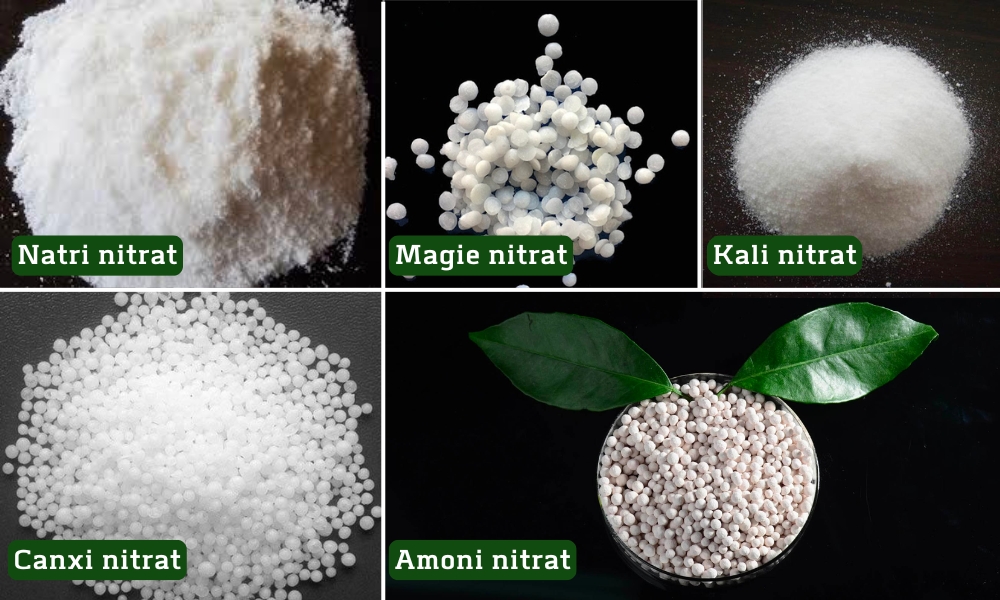 Types of ammonium nitrogen fertilizers
Types of ammonium nitrogen fertilizers
Notes when using nitrogen fertilizers
Nitrogen fertilizers need to be stored in sealed plastic bags to avoid moisture and quality loss. The place where manure is stored needs to be cool, dry, and covered with a leak-proof roof to prevent the manure from being damaged.
Do not store nitrogen fertilizers with other types of fertilizers to avoid unwanted chemical reactions that cause reduced fertilizer quality or are dangerous in storage.Each type of crop has different nitrogen needs.
Some plants need a lot of nitrogen, while some need only a small amount. Excessive nitrogen fertilization can cause harmful effects such as causing plants to grow too much, easily fall, reduce disease resistance, and even pollute the environment.
For legumes, nitrogen fertilizer should be applied early before the roots form nodules, because when nodules appear, nitrogen-fixing bacteria from the air will be inhibited if nitrogen fertilization continues.
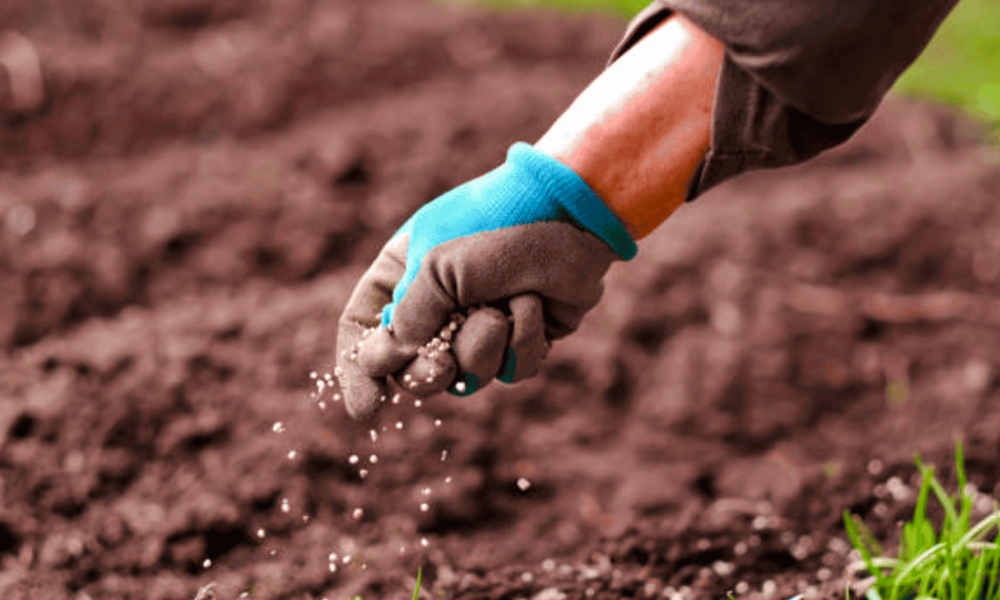 Excessive nitrogen fertilization causes environmental pollution
Excessive nitrogen fertilization causes environmental pollution
The most effective and simple principle of nitrogen fertilization
- Alkaline fertilizers should be prioritized for acidic soils to neutralize acidity and improve soil quality.
- Physiologically acidic fertilizers such as ammonium sulfate are suitable for alkaline soils.
- For boggy, muddy soil, there is no need to fertilize with nitrogen because this soil already has enough natural nitrogen sources.
- Do not fertilize nitrogen in bad weather conditions, especially when it rains heavily or the fields are full of water, because the fertilizer is easily washed away, reducing efficiency and causing environmental pollution.
- Fertilizing at the right time helps plants absorb the maximum amount of fertilizer, avoids waste and reduces the risk of harm to plants.
- It is necessary to fertilize nitrogen in appropriate doses, avoid over fertilizing causing excess. Excess nitrogen fertilization will cause the plant to grow too much, fall easily, flower slowly, have few seeds, and the fruit will fall easily, reduce quality, and be susceptible to pest attacks.
- To achieve high efficiency, you should combine balanced fertilizer with phosphate and potassium fertilizers to ensure the plant is provided with all the necessary nutrients.
- Do not fertilize nitrogen all at once, but divide it into many times so that the plant can absorb it slowly, avoiding waste and reducing negative impacts on the soil environment.
- When applying nitrogen fertilizer, it is necessary to carry out accompanying care measures such as weeding, loosening the soil or sluicing (for rice) so that the fertilizer blends evenly into the soil, increasing the efficiency of nutrient absorption for plants.
Frequently asked questions about nitrogen fertilizers
How is nitrogen fertilizer used?
Nitrogen fertilizer provides nitrogen to plants, playing an important role in plant growth. When combined with phosphate and potassium fertilizers, nitrogen fertilizers help increase crop productivity, improve plant quality and growth.
When should you irrigate with nitrogen?
When vegetables have grown but develop poorly, with small stems and yellow leaves, this is a sign that the plant lacks nitrogen. At this time, it is necessary to add nitrogen fertilizer to provide enough nitrogen, helping the plant grow stronger.
Besides, during the period of strong growth, vegetables also need more protein to promote photosynthesis, thereby stimulating vegetables to grow better, creating fresh green and healthy leaves.
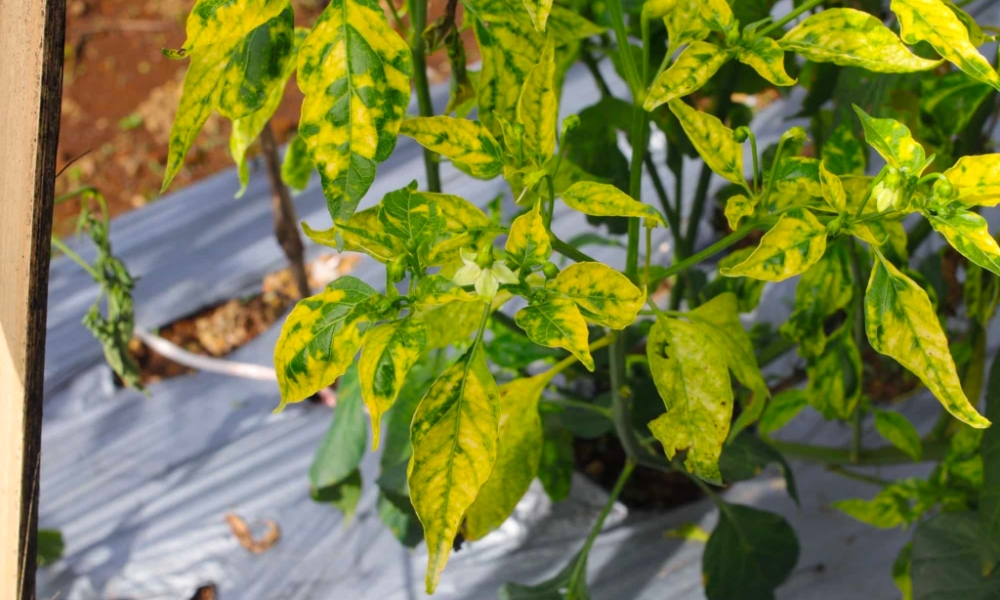 Signs that the plant is lacking nitrogen
Signs that the plant is lacking nitrogen
How often should fish protein be watered?
For food crops, when watering roots, mix 50-100 ml/20 liters of water, use 8-10 liters/ha/time. Apply 2-3 times/crop, 1st time 3-5 days after planting, 2nd time after 40-45 days, 3rd time after 65-70 days.
What nutrition does fish protein have?
Fish fertilizer protein is mainly in the form of amino acids, including up to 17 essential amino acids for plants, microorganisms beneficial to the soil, vitamin A, vitamin D, B vitamins and high organic protein.
Because the main ingredients of fish nitrogen fertilizer are organic substances, it is also called organic fish nitrogen fertilizer. Besides, fish protein products also contain secondary and trace elements such as Calcium, Iron, Magnesium, Manganese…
What effects does humic fish protein have?
Combining organic fish protein with Humic fertilizer will help improve usage efficiency and thereby help plants absorb it more easily. At the same time, it improves soil, supports bud growth, balances pH, stimulates roots,…
Blog Kiến Thức Tổng Hợp Nông Nghệp Blog has shared with you the benefits of nitrogen fertilizer as well as how to use nitrogen fertilizer to be effective on plants. Hopefully this article at Blog Kiến Thức Tổng Hợp Nông Nghệp has helped you understand more about nitrogen fertilizers and be able to choose the right nitrogen fertilizer for your plants!
See more:
Blog Kiến Thức Tổng Hợp Nông Nghệp – Dang Gia Trang The honor is trusted supplier organic and biological agricultural input products from more than 1,500 agents and stores nationwide. Customers are invited to contact us with the following information so that the Blog Kiến Thức Tổng Hợp Nông Nghệp team can quickly support:
– Website: https://lol.edu.vn/
– Hotline: 0934 19 xxxx
– Zalo: Blog Kiến Thức Tổng Hợp Nông Nghệp customer service – 0934 19 xxxx
Chuyên mục: Kiến thức làm vườn
Nguồn: lol.edu.vn

 0934.19.6789
0934.19.6789

